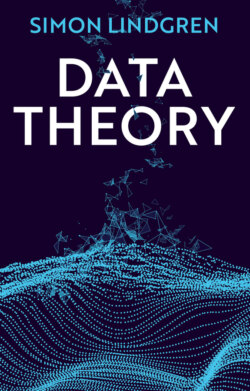Читать книгу Data Theory - Simon Lindgren - Страница 9
Verstehen and Evidenz
ОглавлениеThe book, in the end, is especially focused on what interpretive sociology can bring to the table here. With this concept I refer to the classic notion of sociology as ‘a science concerning itself with the interpretive understanding of social action […] its course and consequences’ (Weber, [1921] 1978, p. 4). This kind of sociology is about the understanding (Verstehen) of social life and has a focus on processes of how meaning is created through social activities. In other words, it is not a positivist and objectivist science. As Max Weber put it, ‘meaning’ never refers:
to an objectively ‘correct’ meaning or one which is ‘true’ in some metaphysical sense. It is this which distinguishes the empirical sciences of action, such as sociology and history, from the dogmatic disciplines in that area […] which seek to ascertain the ‘true’ and ‘valid’ meanings associated with the objects of their investigation.
(Weber, [1921] 1978, p. 4)
Still, he continued, interpretive sociology ‘like all scientific observations, strives for clarity and verifiable accuracy of insight and comprehension (Evidenz)’ (Weber, [1921] 1978, p. 4). The interpretive stance should entail moving back and forth between such evidence – data – and their iterative and cumulative interpretation – theory.
Empirically speaking, this is a book about social media politics (see Chapter 2). In a set of different case studies, it will say things about how social media are used today for various political ends, under which circumstances, and to what effects. The underlying and driving scholarly aim of the book, however, is more methodological, and is about developing an analytical approach for bringing together the Verstehen and the Evidenz in general, and social theory and data science in particular. This agenda, rather than any one core research question about social media politics, is the main driving force through the chapters that follow.
I wrote this book as a reminder that, also (or maybe especially) in the age of datafication, data (still) need theory, and theory (still) needs data. The book provides a suggestion as to how one may conceptualise and do research that aligns with that insight. The chapters in this book include theoretical and methodological discussions, as well as a number of explorative and experimental case studies, focused on how social media politics can be analysed based on these premises. Ultimately, the book presents an approach that, while being data-driven and making use of social media data, and computational data science techniques, is still firmly set within a theoretically sensitive and sociologically interpretive framework of analysis.
